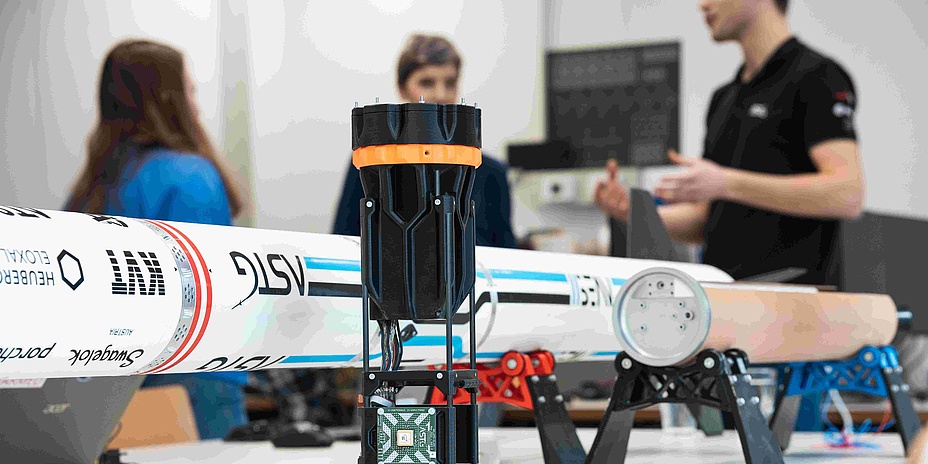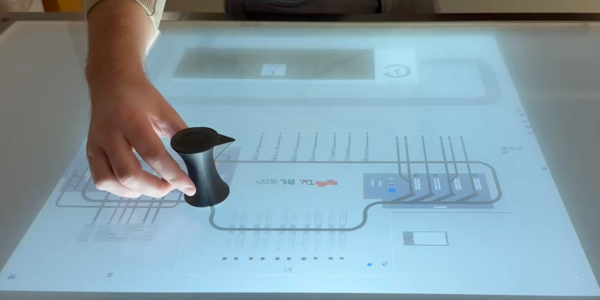Making money alongside your studies is nothing that is unfamiliar to most students. As a student of Mechanical Engineering and Business Economics from Bosnia and Herzegovina at the Graz University of Technology (TU Graz), I have also had experience with a wide range of jobs. However, what I have noticed over the years is that most students are not aware of all the job options for students in Austria, since we don't have such opportunities in our home countries. Therefore, many students focus on temporary jobs such as work in gastronomy, catering, logistics etc. It’s indeed a good place to start and an easy way to earn some money.

My colleague Ekrem even wrote a blog post on this topic, sharing his tips and focusing on legal requirements as well.
But, unless you want to stay in these sectors long-term, these jobs will not have much of an impact on your professional CV. Luckily, at TU Graz, and in Graz in general, there are multiple ways to get experience and expand your professional network in your respective field of study.
Tip 1: You CAN and SHOULD work in a student job that is related to your field of study.
The simplest way to get a first job in your field is at University. You can become a tutor for a subject you are good at, or work in research and development at one of the institutes. My first CV-relevant job was at the Institute of Mechanics where I worked as a tutor – after I passed the exam with a good grade I wrote an email to the professor expressing that I would like to support her at the institute, and that is how I got a job.

Tip 2: TU Graz has about 100 institutes across seven faculties, and as a student you are highly welcome and supported to start working at one of them – just contact the professor in charge and express your interests or search on the website of the Career Info-Service.
There are also multiple ways to get a job in the industry. Companies in Austria offer both summer and winter internships as well as part time student positions and Graz as a technical hub of Austria has thousands of firms in the tech field. Start by researching industries and companies of interest and then do everything you can to get in touch and reach out. Start going to careers fairs to meet company representatives. Talk to them about your passions and qualifications, take business cards and send short follow-up emails afterwards. TU Graz for example hosts multiple careers fairs like Teconomy or the BEST beWANTED career event every year.
Visit companies during open days, workshops or events. You can find information on the open days of a specific company by googling “name of the company” + “fairs and events”. Subscribe to their careers newsletters so you don’t miss out on any cool event opportunities.
Tip 3: Apply for summer or winter internships in industry and reach out to people to increase your chances of getting the job by going to fairs and company events.
Careers social media platforms such as LinkedIn can have a massive impact on your job opportunities. Keep your LinkedIn profile updated, set a professional picture as your profile photo, and post about your achievements as well as share your knowledge and expertise. Connect with people with career paths similar to what you want to achieve and don’t be shy to contact them. A very honest and true story about how I got my first internship: I discovered a few companies that I found interesting and then searched “Name of the company + city” on LinkedIn. I wrote a personal message to a person whom I found very inspiring saying I was lacking industry experience but was very motivated to change that, and attached my application. I was very lucky that this amazing individual saw my potential and forwarded my application with a very warm recommendation. If I hadn’t been that lucky, it could have maybe taken me tens or hundreds of contacts before I got a reply, but I still wouldn’t have given up. Keep approaching people. Accomplished people are looking for somebody they can teach and lift up.

Tip 4: Use online careers platforms like LinkedIn to expand your network and make yourself visible in the job market. Your network is your biggest asset. Utilize these personal connections when applying.
Like every start, getting the first internship in the industry can be hard. You will probably have to knock on many doors until you get a job so don't give up! To maximize your chances, you need to expand your network and enrich your CV. One great way to do both is to join student teams or organizations. TU Graz has multiple student teams such as a car racing team, an aerospace team, and even a student consulting team of whom I myself was part. The two years I've spent in this student consultancy have not only provided me with hands-on experience in management consulting but also connected me with industry experts – which led me to my second and third internships – and numerous motivated and ambitious students, many of whom have become my close friends.

Tip 5: Student teams and organizations are a great way to expand your network, get hands-on experience and have some fun! Search the website "Overview: Student Teams" to learn more about student competition and focus teams and networking initiatives at TU Graz.
Your studies are indeed your primary focus, but my heartfelt advice is to use your student years to also get to know yourself and experiment. My dad always told me “Don't just go through school, but let school go through you." Engaging in internships across various companies, collaborating in student teams, interacting with institutes, and networking with diverse individuals offer an invaluable opportunity to discover oneself and discern the type of job that resonates best. That’s why it’s never too early to start! In your first academic year you can already join or even launch your own student team, apply for jobs, attend events etc. Be professional and strategic about your career goals but also have some fun. Remember, your academic journey isn't just about passing exams; it's about discovering who you are and where you want to go.
Tip 6: It’s never too early to start experimenting with your career. Use your student years to explore, engage, and discover your passions beyond the classroom!
![[Translate to Englisch:] [Translate to Englisch:]](https://www.tugraz.at/fileadmin/_processed_/9/a/csm_Studierende-Campus-by-Lunghammer-tugraz_1efdfcea9e.jpg)




